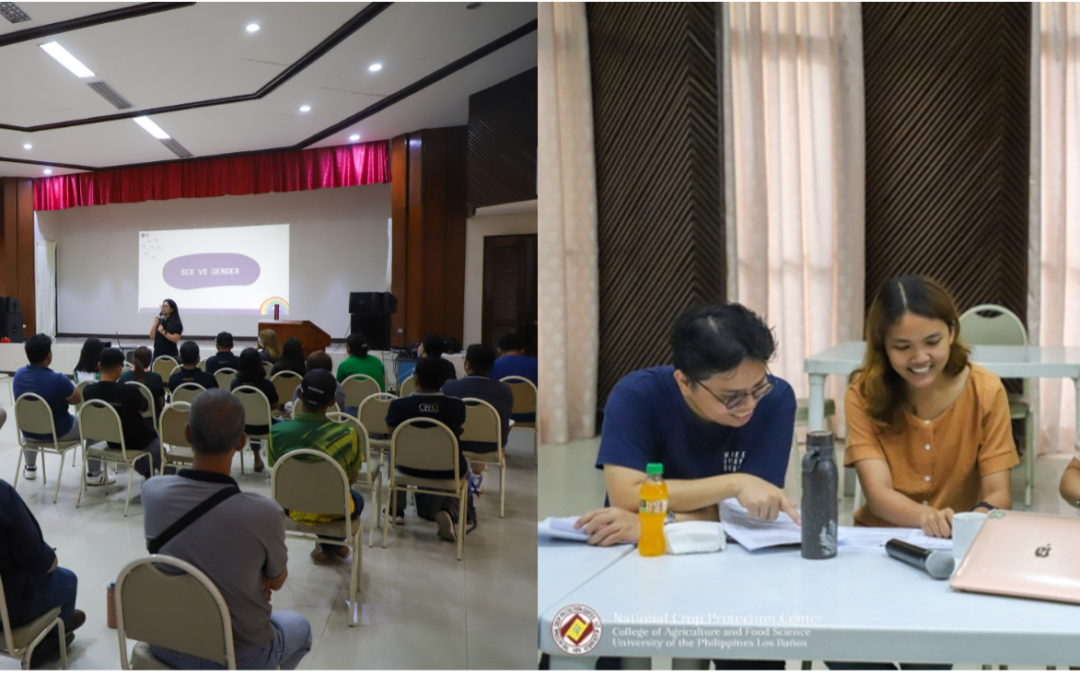(L) Ms. Sairah Mae R. Saipudin discusses the difference between sex and gender during the Gender Sensitivity Training. (R) NCPC REPS assess the gender responsiveness of a sample project. (Photos by PMdeChavez and JMMNavasero)
Personnel of the National Crop Protection Center (NCPC) underwent Gender Sensitivity Training (GST) and the Training on the Use of the Harmonized Gender and Development Guidelines (HGDG) on March 20 and 21, respectively.
The trainings were conducted by the UPLB Gender Center, with Ms. Sairah Mae R. Saipudin, Ms. Jullie-Ann C. Reyes, and Ms. Genesis Giselle T. Baseleres as resource speakers
In the opening remarks of Dr. Barbara L. Caoili, NCPC director, delivered by Ms. Maureen Ceres dL. de Roxas, Chairperson of the NCPC GAD Committee, she explained the importance of the conduct of the trainings in fostering a more inclusive environment for the NCPC personnel, stakeholders, and for everyone.
“We want to be more sensitive and more aware so we can treat everyone with dignity and respect, and we can be a catalyst for gender equality,” she added.
The GST was attended by the Center’s REPS, administrative staff, and ICS personnel, while the Training on the Use of HGDG was attended by the REPS.
During the GST, Ms. Saipudin discussed the difference between sex and gender and tackled sexual orientation, gender identity, gender expression, and sex characteristics.
Ms. Saipudin also talked about gender stereotypes and their impacts. To fight gender stereotypes, she suggested talking about them and speaking up.
Ms. Reyes then discussed gender fair language. According to her, the use of non-sexist language is important in promoting inclusivity, recognizing all genders, and promoting gender equality. She encouraged the participants to make a conscious effort to avoid implicit and explicit discriminatory language against men and women and to promote gender sensitivity in the workplace.
Meanwhile, during the Training on the Use of HGDG, Ms. Baseleres taught the NCPC REPS about gender mainstreaming or the inclusion of gender perspectives in the design and implementation of plans and programs to carry out agency mandates.
She introduced gender analysis and stressed its importance in identifying gender issues and designing strategies that are relevant to proposed and existing programs, projects, and activities.
Afterwards, the REPS were familiarized with the HGDG and the Program and Project Implementation, Management, and Monitoring and Evaluation (PIMME). Finally, they underwent an activity that allowed them to practice assessing the gender responsiveness of projects.








